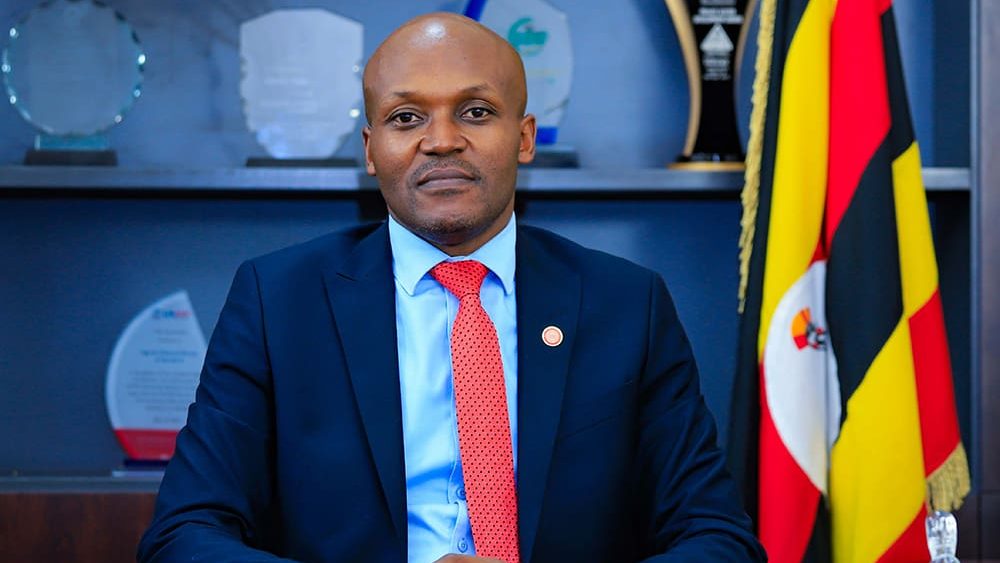Trade minister Francis Mwebesa has castigated the Uganda National Bureau of Standards (UNBS) council while defending the appointment of Eng. James Nkamwesiga Kasigwa, who he said was unfairly side-lined for the executive director position.
In an affidavit to the court, Mwebesa stated that Kasigwa is the rightful executive director, having emerged as the top candidate during interviews.
The minister was defending Kasigwa in a case brought by Fortunate Benda Muyambi, who is contesting the minister’s decision to appoint Kasigwa as the executive director.
Muyambi, the deputy executive secretary at the East Africa Science and Technology Commission, sued the minister, the Attorney General, UNBS and Kasigwa at the civil division of the High Court in Kampala this year.
Mwebesa explained that when the executive director position fell vacant, UNBS initiated the recruitment process, which saw six applicants apply.
These included Kasigwa, Muyambi; Ajer Basil, the former Uganda Investment Authority acting executive director; Samson Akankiza, the Dairy Development Authority director for technical services; Apollo Segawa, the Consortium for Enhancing University Responsiveness to Agribusiness Development managing director and UNBS ICT manager Charles Nkwanga.
Mwebesa received a report from the National Standards Council indicating that a 60% cut-off point was used to recommend candidates for further consideration.
Five of the six candidates met this criterion, but National Standards Council chairperson Charles Musekuura recommended only two candidates, which Mwebesa deemed unfair.
The minister told the court that the National Standards Council report mentioned correcting arithmetic errors in Kasigwa’s scores but failed to provide evidence, which was irregular.
“There is no board and as the appointing authority of the director and the overseer of UNBS, I analysed all the short-listed candidates and appointed Kasigwa since he was the only candidate who best-matched all the requirements, as per the advertisement,” he stated.
The candidates were required to possess a relevant science degree, a master’s degree in a relevant science or management field, and 15 years of practical experience in a senior leadership or management position.
Mwebesa argued that under the UNBS Act, the executive director is appointed by the minister on the recommendation of the UNBS board, not the National Standards Council, which does not have the authority to make appointments.
On June 20, Deputy Attorney General Jackson Kafuuzi gave an opinion challenging Mwebesa’s decision to appoint Kasigwa. However, Mwebesa responded on June 21, detailing the thorough scrutiny and due diligence that led to Kasigwa’s appointment.
On July 26, the Attorney General, Kiryowa Kiwanuka, suggested settling the matter out of court by revoking Kasigwa’s appointment and withdrawing Muyambi’s suit, but Mwebesa insisted on resolving the issue in court.
Beneath the surface Mwebesa noted interference in the recruitment process, including the alleged submission of interview results to the Attorney General’s office by former trade ministry permanent secretary Geraldine Ssali without his knowledge.
Mwebesa also highlighted governance challenges within UNBS due to misconduct and conflict of interest within the National Standards Council.
“It was in the interest of patriotism and nationalism that the interview report is subjected to scrutiny and due diligence considering the fact that UNBS is a critical government agency that supports the economy through facilitation of trade and industry,” he advised the Attorney General.
Mwebesa denied allegations that he appointed Kasigwa after being bribed with sh35orn, saying Muyambi’s actions have damaged his and Kasigwa’s reputations, and requested the court to award damages.
Under the UNBS Act, the executive director is appointed by the minister on the recommendation of the board.

